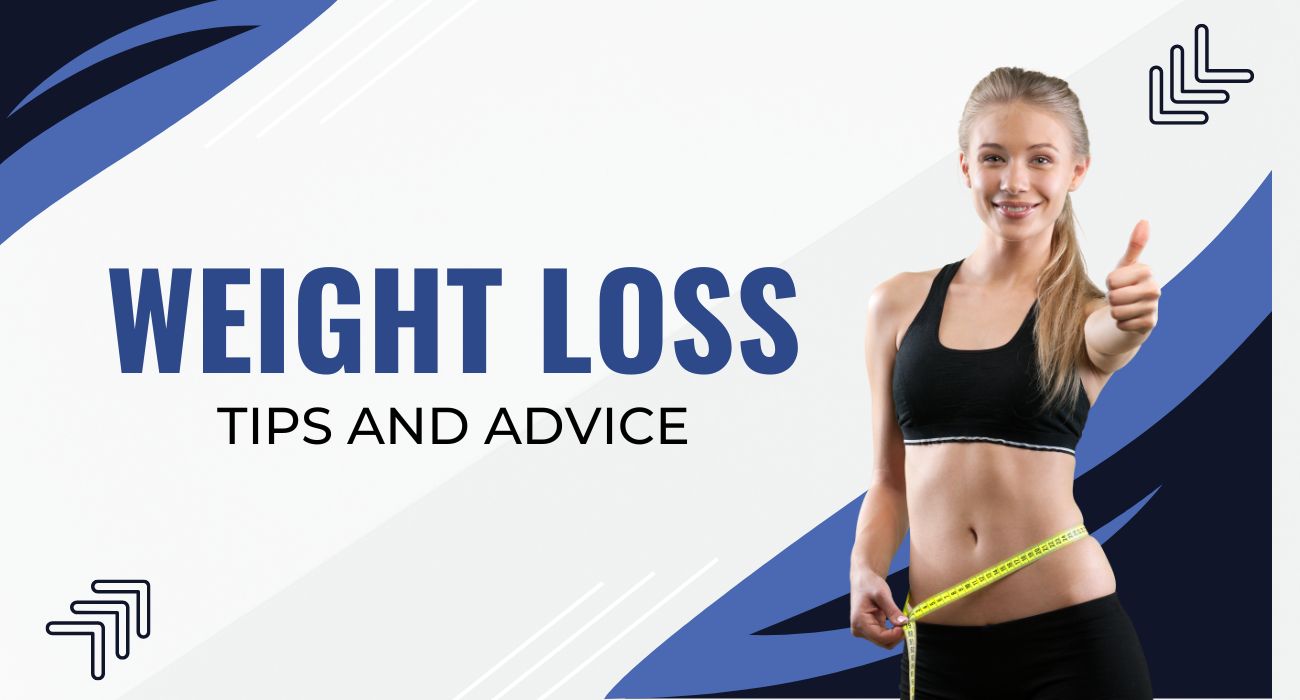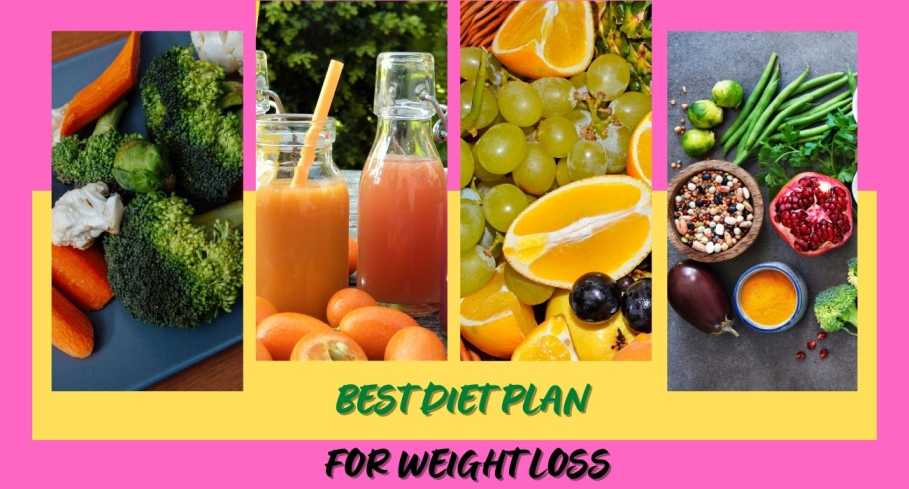
Weight loss can be a challenging and overwhelming journey, with countless diets and plans claiming to be the best. But what works for one person may not work for another, which can make it difficult to find the right diet plan for your specific needs and goals.
In this article, we will guide you through the process of finding the best diet plan for weight loss. We will explore different types of diets, their benefits and drawbacks, and how to choose a plan that suits your lifestyle and preferences. Let’s dive in!
Understanding Different Types of Diets
There are many different types of diets out there, each with its own unique approach to weight loss. Here are some of the most popular ones:
- Low-carb diets: Low-carb diets are based on the idea that reducing your intake of carbohydrates can help you lose weight. These diets typically involve cutting out or limiting foods like bread, pasta, rice, and sugar, and increasing your intake of protein, healthy fats, and vegetables.
- Low-fat diets: Low-fat diets focus on reducing your intake of fat, particularly saturated fat, which is often found in animal products like meat and dairy. These diets typically emphasize foods like fruits, vegetables, whole grains, and lean protein sources like chicken and fish.
- Mediterranean diet: The Mediterranean diet is based on the traditional eating patterns of countries like Greece and Italy. This diet emphasizes whole foods like fruits, vegetables, whole grains, nuts, seeds, and healthy fats like olive oil. It also includes moderate amounts of fish, poultry, and dairy, and limited amounts of red meat and sweets.
- Intermittent fasting: Intermittent fasting involves cycling between periods of eating and fasting. This can involve restricting your eating to a certain number of hours each day, or fasting for one or more days each week.
- Plant-based diets: Plant-based diets are based on the idea that a diet focused on fruits, vegetables, whole grains, and plant-based protein sources can be beneficial for weight loss and overall health. These diets typically limit or exclude animal products like meat, dairy, and eggs.
Benefits and Drawbacks of Different Diets
Each type of diet has its own unique benefits and drawbacks, which can make it difficult to choose the right one for your needs. Here are some of the pros and cons of the most popular diets:
- Low-carb diets:
Benefits:
- Can lead to rapid weight loss, particularly in the first few weeks
- Can improve blood sugar and insulin levels in people with type 2 diabetes
- Can increase levels of “good” HDL cholesterol
Drawbacks:
- Can be difficult to sustain in the long term
- May lead to constipation or other digestive issues
- Can increase levels of “bad” LDL cholesterol in some people
- Low-fat diets:
Benefits:
- Can lead to weight loss, particularly when combined with exercise
- Can reduce the risk of heart disease and stroke
- Can improve cholesterol levels
Drawbacks:
- May not be as effective for weight loss as other diets
- Can be difficult to follow, particularly for people who enjoy fatty foods
- May increase the risk of nutrient deficiencies if not properly planned
- Mediterranean diet:
Benefits:
- Can lead to weight loss, particularly when combined with exercise
- Can reduce the risk of heart disease, stroke, and certain types of cancer
- Can improve cholesterol levels and blood sugar control
Drawbacks:
- May be more expensive than other diets, particularly if you opt for high-quality olive oil and other specialty ingredients
- May be difficult to follow for people who are used to a typical Western diet
- May require more time for meal planning and preparation
- Intermittent fasting:
Benefits:
- Can lead to weight loss, particularly in the first few weeks
- Can improve insulin sensitivity and blood sugar control
- May have anti-aging and longevity benefits
Drawbacks:
- Can be difficult to sustain in the long term
- May lead to hunger and cravings during fasting periods
- May not be suitable for people with certain health conditions or who are pregnant or breastfeeding
- Plant-based diets:
Benefits:
- Can lead to weight loss, particularly when combined with exercise
- Can reduce the risk of heart disease, stroke, and certain types of cancer
- May improve digestion and reduce inflammation
Drawbacks:
- May require careful planning to ensure adequate nutrient intake, particularly for protein, iron, and calcium
- May be difficult to follow for people who are used to a diet rich in animal products
- May be more expensive than a typical Western diet, particularly if you opt for organic or specialty plant-based foods
How to Choose the Right Diet Plan for You
Now that you understand the benefits and drawbacks of different diets, it’s time to choose a plan that suits your lifestyle and preferences. Here are some tips to help you make the right choice:
- Consider your goals: What are your main goals for weight loss? Are you looking to lose weight quickly, or do you want to make sustainable changes to your diet and lifestyle? Do you have any specific health concerns, such as high blood pressure or diabetes, that may influence your choice of diet?
- Think about your lifestyle: What is your typical daily routine like? Do you have time to prepare meals from scratch, or do you rely on convenience foods? Are you a vegetarian or vegan, or do you prefer to eat meat and dairy products? These factors can all influence the type of diet that will work best for you.
- Consult a healthcare professional: If you have any underlying health conditions or concerns, it’s important to speak with a healthcare professional before starting a new diet plan. They can help you determine whether a particular diet is safe and appropriate for your needs.
- Consider your budget: Some diets, such as the Mediterranean diet, can be more expensive than others. Consider whether you can afford to purchase speciality ingredients or supplements, or whether you need to stick to a budget-friendly plan.
- Be realistic: It’s important to choose a diet plan that you can realistically stick to over the long term. This means choosing a plan that fits with your lifestyle and preferences, and that you enjoy eating. If you hate eating salads, for example, a plant-based diet may not be the best choice for you.
Which is the Best Diet Plan for Weight Loss?

Losing weight is a common goal among many people, and one of the best ways to achieve this goal is through diet. However, with so many diet plans available, it can be challenging to determine which one is the best for weight loss. In this article, we will explore the most popular diet plans and their effectiveness in helping you lose weight.
- The Ketogenic Diet
The ketogenic diet, commonly known as the keto diet, is a low-carb, high-fat diet that has gained popularity in recent years. This diet involves reducing your carbohydrate intake and replacing it with healthy fats, which puts your body into a metabolic state called ketosis. Ketosis is a natural metabolic state in which your body burns fat for energy instead of carbohydrates.
Several studies have shown that the keto diet is an effective way to lose weight. One study found that participants who followed a ketogenic diet lost more weight and had greater reductions in body mass index (BMI) than those who followed a low-fat diet. Another study found that the keto diet led to greater weight loss and improvements in body composition than a low-fat diet or a Mediterranean diet.
However, the keto diet is not suitable for everyone. People with certain medical conditions, such as pancreatitis or liver disease, should avoid this diet. Additionally, the keto diet can be difficult to sustain long-term due to its restrictive nature, which may lead to weight regain once you resume a normal diet.
- The Mediterranean Diet
The Mediterranean diet is a plant-based diet that emphasizes fruits, vegetables, whole grains, legumes, and healthy fats, such as olive oil and nuts. This diet also includes moderate amounts of fish, poultry, and dairy products, while limiting red meat and processed foods.
Several studies have shown that the Mediterranean diet can help with weight loss. One study found that participants who followed a Mediterranean diet lost more weight and had greater reductions in BMI than those who followed a low-fat diet. Another study found that the Mediterranean diet led to significant reductions in body weight, waist circumference, and body fat percentage compared to a low-fat diet.
The Mediterranean diet is also associated with numerous health benefits, including a reduced risk of heart disease, diabetes, and certain types of cancer. This diet is sustainable and easy to follow long-term, making it a popular choice for many people.
- The Atkins Diet
The Atkins diet is a low-carb, high-protein diet that has been around for several decades. This diet involves restricting your carbohydrate intake and increasing your protein and fat intake. The Atkins diet has several phases, with the first phase being the most restrictive, allowing only 20-25 grams of carbohydrates per day.
Studies have shown that the Atkins diet can lead to significant weight loss. One study found that participants who followed the Atkins diet lost more weight and had greater improvements in blood pressure, cholesterol levels, and triglycerides than those who followed a low-fat diet. Another study found that the Atkins diet led to greater weight loss and improvements in body composition than a low-fat diet or a Mediterranean diet.
However, the Atkins diet can be difficult to sustain long-term due to its restrictive nature, which may lead to weight regain once you resume a normal diet. Additionally, the high protein and fat intake may be harmful to people with certain medical conditions, such as kidney disease.
- The Paleo Diet
The Paleo diet, also known as the caveman diet, is a diet that is based on the foods that our ancestors ate during the Paleolithic era. This diet involves eating whole, unprocessed foods, such as meat, fish, fruits, vegetables, nuts, and seeds, while avoiding processed foods, grains, legumes, and dairy products.
Several studies have shown that the Paleo diet can help with weight loss. One study found that participants who followed a Paleo diet lost more weight and had greater improvements in body composition and waist circumference than those who followed a standard low-fat diet. Another study found that the Paleo diet led to significant reductions in body weight, BMI, and waist circumference compared to a diabetes diet.
However, the Paleo diet can be challenging to follow due to its restrictive nature, which may lead to nutrient deficiencies if not properly planned. Additionally, the high protein and fat intake may be harmful to people with certain medical conditions, such as kidney disease.
- The DASH Diet
The DASH diet, or Dietary Approaches to Stop Hypertension, is a diet that is designed to help lower blood pressure and improve overall health. This diet involves eating plenty of fruits, vegetables, whole grains, lean proteins, and low-fat dairy products while limiting sodium, saturated fats, and added sugars.
Several studies have shown that the DASH diet can help with weight loss. One study found that participants who followed the DASH diet lost more weight and had greater reductions in BMI and waist circumference than those who followed a standard low-fat diet. Another study found that the DASH diet led to significant reductions in body weight, BMI, and waist circumference compared to a control group.
The DASH diet is also associated with numerous health benefits, including a reduced risk of heart disease, diabetes, and stroke. This diet is sustainable and easy to follow long-term, making it a popular choice for many people.
- The Weight Watchers Diet
The Weight Watchers diet is a commercial weight loss program that assigns points to foods based on their calorie, fat, and fiber content. Participants are assigned a daily point goal and are encouraged to eat a balanced diet while staying within their point limit.
Several studies have shown that the Weight Watchers diet can lead to significant weight loss. One study found that participants who followed the Weight Watchers diet lost more weight and had greater improvements in cholesterol levels and blood pressure than those who followed a standard low-fat diet. Another study found that the Weight Watchers diet led to greater weight loss and improvements in body composition than a self-help diet or a standard care group.
The Weight Watchers diet is also associated with numerous health benefits, including a reduced risk of heart disease and diabetes. This diet provides social support and accountability, making it a popular choice for many people.
There are many diet plans available that can help with weight loss. The ketogenic diet, Mediterranean diet, Atkins diet, Paleo diet, DASH diet, and Weight Watchers diet are all effective options that have been shown to lead to significant weight loss. However, it is important to choose a diet plan that is sustainable and easy to follow long-term, as weight loss is a journey that requires ongoing effort and commitment. Consult with a healthcare professional before starting any new diet plan to ensure it is safe and appropriate for your individual needs and health status.
The Best Diet Plan for Fast Weight Loss: A Comprehensive Guide
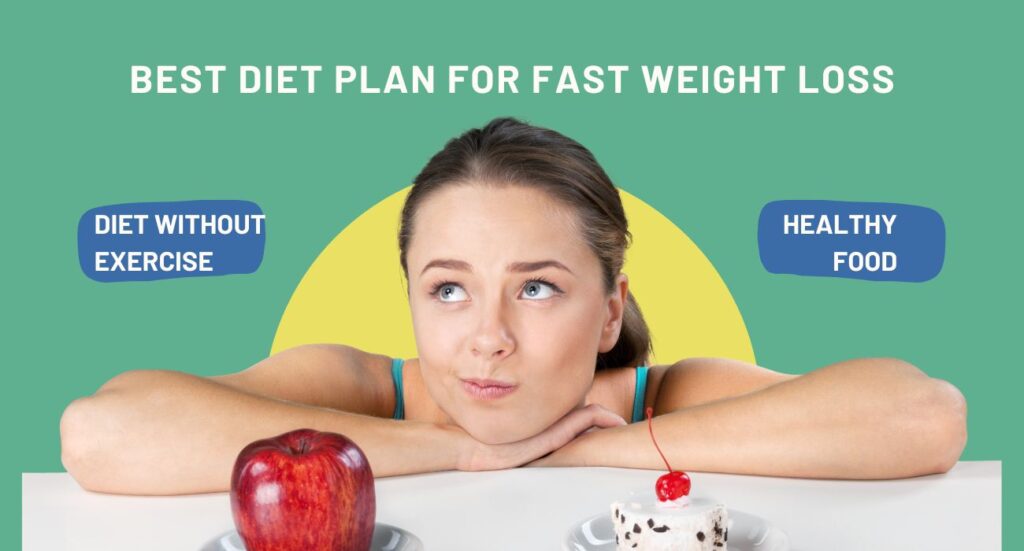
Losing weight can be a daunting task, especially if you’re looking to shed those extra pounds quickly. With so many diets and weight loss plans out there, it can be hard to know which one is the best for you. However, with a little research and planning, you can find the best diet plan for fast weight loss that suits your needs and helps you achieve your goals. In this article, we’ll explore some of the most effective diet plans for fast weight loss, including their benefits, drawbacks, and how to get started.
- The Ketogenic Diet
The ketogenic diet, or keto for short, is a low-crab, high-fat diet that has become increasingly popular in recent years. The diet works by forcing your body to burn fat for fuel instead of carbohydrates, which can lead to rapid weight loss.
One of the primary benefits of the ketogenic diet is that it can lead to rapid weight loss, with some people losing up to 10 pounds in the first week. Additionally, many people report feeling more satisfied and less hungry while following the diet, which can make it easier to stick to.
However, the ketogenic diet can be challenging to follow, especially in the beginning. The diet requires you to drastically reduce your carbohydrate intake, which can be difficult for those used to a carb-heavy diet. Additionally, the high-fat content of the diet can be hard on your digestive system and may lead to gastrointestinal issues.
If you’re interested in trying the ketogenic diet, it’s important to speak with your doctor first. Additionally, you’ll need to carefully plan your meals to ensure that you’re getting enough nutrients and staying within the diet’s strict guidelines.
- The Mediterranean Diet
The Mediterranean diet is a balanced, whole-foods-based diet that is inspired by the traditional eating habits of people in Mediterranean countries. The diet emphasizes fruits, vegetables, whole grains, lean protein, and healthy fats like olive oil.
One of the primary benefits of the Mediterranean diet is that it is relatively easy to follow and can lead to sustainable weight loss. Additionally, the diet is associated with a range of health benefits, including a reduced risk of heart disease and improved cognitive function.
However, the Mediterranean diet may not be as effective for rapid weight loss as some other diets. While you may still see results, the weight loss may be slower and more gradual.
To get started with the Mediterranean diet, focus on incorporating whole foods into your meals and limiting processed foods and refined sugars. Additionally, be sure to include plenty of healthy fats like olive oil, nuts, and fatty fish.
- The Whole30 Diet
The Whole30 diet is a 30-day program that eliminates a range of potentially inflammatory foods, including grains, dairy, legumes, and sugar. The diet is designed to help you reset your body and identify potential food sensitivities.
One of the primary benefits of the Whole30 diet is that it can lead to rapid weight loss, with some people reporting losing up to 10 pounds in the first month. Additionally, the diet can help you identify potential food sensitivities that may be contributing to inflammation, bloating, or other health issues.
However, the Whole30 diet can be challenging to follow, especially in the beginning. The diet requires you to eliminate a wide range of foods, which can be difficult for those used to a more flexible diet. Additionally, the strict guidelines of the diet can be hard to maintain long-term.
If you’re interested in trying the Whole30 diet, it’s important to speak with your doctor first. Additionally, you’ll need to carefully plan your meals to ensure that you’re getting enough nutrients and staying within the diet’s strict guidelines.
- The DASH Diet
Approaches to Stop Hypertension, is a diet plan that focuses on reducing high blood pressure. The diet emphasises fruits, vegetables, whole grains, lean protein, and low-fat dairy while limiting sodium, sugar, and saturated fat.
One of the primary benefits of the DASH diet is its effectiveness in reducing high blood pressure. Additionally, the diet is associated with a range of health benefits, including weight loss, improved heart health, and reduced risk of chronic diseases such as diabetes and cancer.
However, the DASH diet may not be as effective for rapid weight loss as some other diets. While weight loss may still occur, it may be slower and more gradual.
To get started with the DASH diet, focus on incorporating more fruits, vegetables, and whole grains into your meals while reducing your intake of sodium, sugar, and saturated fat. Additionally, aim to consume more low-fat dairy and lean protein sources.
- The Atkins Diet
The Atkins diet is a low-carb, high-protein diet that emphasizes eating primarily protein and fat while limiting carbohydrates. The diet is designed to promote weight loss by forcing your body to burn fat for fuel.
One of the primary benefits of the Atkins diet is that it can lead to rapid weight loss, with some people reporting losing up to 15 pounds in the first two weeks. Additionally, the diet can help improve blood sugar control and may reduce the risk of heart disease.
However, the Atkins diet can be challenging to follow, especially in the beginning. The diet requires you to drastically reduce your carbohydrate intake, which can be difficult for those used to a carb-heavy diet. Additionally, the high-protein content of the diet can be hard on your kidneys and liver.
If you’re interested in trying the Atkins diet, it’s important to speak with your doctor first. Additionally, you’ll need to carefully plan your meals to ensure that you’re getting enough nutrients and staying within the diet’s guidelines.
Tips for Success with any Diet Plan
Regardless of which diet plan you choose, there are some tips that can help increase your chances of success:
- Set Realistic Goals: It’s important to set realistic goals for yourself when starting a diet plan. Rapid weight loss may be possible, but it’s important to focus on sustainable, long-term changes rather than quick fixes.
- Plan Your Meals: Planning your meals ahead of time can help you stay on track and avoid unhealthy choices when you’re hungry and pressed for time.
- Stay Hydrated: Drinking plenty of water can help keep you feeling full and prevent dehydration, which can negatively impact your weight loss efforts.
- Incorporate Exercise: Exercise is an important component of any weight loss plan. Aim to incorporate at least 30 minutes of moderate exercise into your daily routine.
- Get Enough Sleep: Sleep plays a crucial role in weight loss and overall health. Aim to get at least 7-8 hours of sleep per night.
There are many diet plans that can help you achieve rapid weight loss. However, it’s important to choose a plan that is sustainable and fits your individual needs and preferences. By setting realistic goals, planning your meals, staying hydrated, incorporating exercise, and getting enough sleep, you can increase your chances of success and achieve your weight loss goals.
The Best Diet Plan for Weight Loss: Your Ultimate Guide to Effective and Free Options

Losing weight can be a challenge, but it is achievable with the right diet plan. However, finding the best diet plan for weight loss that is both effective and free can be overwhelming. There are so many options out there, each claiming to be the best. With all the conflicting advice and information, it can be hard to know where to start. That’s why we’ve put together this ultimate guide to help you find the best diet plan for weight loss that fits your lifestyle and budget.
In this article, we will cover the following:
- What is the best diet plan for weight loss?
- How to choose the best diet plan for weight loss?
- The top 5 best diet plans for weight loss that are free.
- Tips for successful weight loss with a diet plan.
What is the Best Diet Plan for Weight Loss?
The best diet plan for weight loss is one that is sustainable, healthy, and effective. A good diet plan should be tailored to your individual needs and goals, taking into account your lifestyle, preferences, and any underlying health conditions.
There are many different types of diets that have been shown to be effective for weight loss. Some of the most popular ones include:
- Low-carb diets: These diets restrict carbohydrate intake and emphasize protein and fat. They are effective for weight loss because they reduce appetite and cause the body to burn fat for fuel.
- Low-fat diets: These diets restrict fat intake and emphasize carbohydrates and protein. They are effective for weight loss because they reduce calorie intake and promote a calorie deficit.
- Mediterranean diet: This diet emphasizes whole, unprocessed foods, including fruits, vegetables, whole grains, and lean protein. It has been shown to be effective for weight loss and reducing the risk of chronic diseases.
- Intermittent fasting: This is not a diet per se, but rather an eating pattern. It involves cycling between periods of fasting and eating. It has been shown to be effective for weight loss and improving metabolic health.
- Plant-based diets: These diets emphasize whole, plant-based foods and limit or exclude animal products. They are effective for weight loss and reducing the risk of chronic diseases.
How to Choose the Best Diet Plan for Weight Loss?
When choosing a diet plan for weight loss, it is important to consider the following factors:
- Your health status: If you have any underlying health conditions, it is important to choose a diet plan that is safe and appropriate for your condition.
- Your lifestyle: The diet plan you choose should fit into your lifestyle and be sustainable in the long-term.
- Your food preferences: The diet plan you choose should include foods that you enjoy and can realistically stick to.
- Your budget: Some diet plans may require special foods or supplements, which can be expensive. It is important to choose a diet plan that fits your budget.
- Your weight loss goals: The diet plan you choose should be tailored to your individual weight loss goals.
The Top 5 Best Diet Plans for Weight Loss that are Free
- The DASH Diet
The Dietary Approaches to Stop Hypertension (DASH) diet is a healthy, balanced eating plan that is effective for weight loss. It emphasizes whole, unprocessed foods, including fruits, vegetables, whole grains, lean protein, and low-fat dairy products. It also limits sodium intake, which can help reduce blood pressure.
The DASH diet is easy to follow and can be customized to your individual needs and preferences. It has been shown to be effective for weight loss, reducing blood pressure, and improving overall health.
- The Mediterranean Diet
The Mediterranean diet is a healthy, plant-based eating pattern that emphasizes whole, unprocessed foods, including fruits, vegetables, whole grains, legumes, nuts, and seeds. It also includes moderate amounts of lean protein, such as fish and poultry, and healthy fats, such as olive oil.
The Mediterranean diet is effective for weight loss because it is rich in fiber and low in processed foods, which can help reduce calorie intake. It also has numerous health benefits, including reducing the risk of chronic diseases such as heart disease and diabetes.
- The Flexitarian Diet
The Flexitarian diet is a plant-based eating plan that allows for occasional consumption of animal products. It emphasizes whole, unprocessed foods, including fruits, vegetables, whole grains, legumes, nuts, and seeds. It also includes moderate amounts of lean protein, such as tofu and tempeh, and occasional consumption of meat, poultry, and fish.
The Flexitarian diet is effective for weight loss because it is rich in fiber and low in processed foods, which can help reduce calorie intake. It also has numerous health benefits, including reducing the risk of chronic diseases such as heart disease and diabetes.
- The Weight Watchers Diet
The Weight Watchers diet is a popular and effective weight loss program that emphasizes healthy, balanced eating and regular physical activity. It uses a points system to help users make healthier food choices and track their progress.
The Weight Watchers program is effective for weight loss because it promotes a calorie deficit through portion control and healthy food choices. It also provides support and accountability through weekly meetings and online resources.
- The SparkPeople Diet
The SparkPeople diet is a free online program that provides personalized meal plans and fitness recommendations based on users’ goals and preferences. It emphasizes healthy, whole foods and regular physical activity.
The SparkPeople program is effective for weight loss because it provides personalized support and accountability. It also includes a supportive online community and a wealth of resources, including recipes, fitness videos, and educational articles.
Tips for Successful Weight Loss with a Diet Plan
- Set realistic goals: It is important to set realistic and achievable weight loss goals to avoid disappointment and frustration.
- Keep track of your progress: Keeping track of your progress can help you stay motivated and identify areas for improvement.
- Make healthy food choices: Choose whole, unprocessed foods and limit or avoid processed and junk foods.
- Practice portion control: Use smaller plates, measure your food, and avoid eating in front of the TV or computer.
- Stay hydrated: Drink plenty of water and avoid sugary drinks.
- Get regular exercise: Incorporate regular physical activity into your daily routine, such as walking, jogging, or cycling.
- Seek support: Enlist the support of friends and family, or join a support group to help you stay motivated and accountable.
Losing weight can be challenging, but with the right diet plan and approach, it is achievable. The best diet plan for weight loss is one that is sustainable, healthy, and effective. When choosing a diet plan, it is important to consider your individual needs and preferences, as well as your health status, lifestyle, budget, and weight loss goals.
There are many effective and free diet plans available, including the DASH diet, the Mediterranean diet, the Egalitarian diet, the
Weight Watchers diet, and the Spark People diet. Whatever diet plan you choose, it is important to make healthy food choices, practice portion control, stay hydrated, get regular exercise, and seek support from friends, family, or a support group. With dedication and perseverance, you can achieve your weight loss goals and improve your overall health and well-being.
The Best Diet Plan for Weight Loss for Women: Tips, Tricks, and Strategies
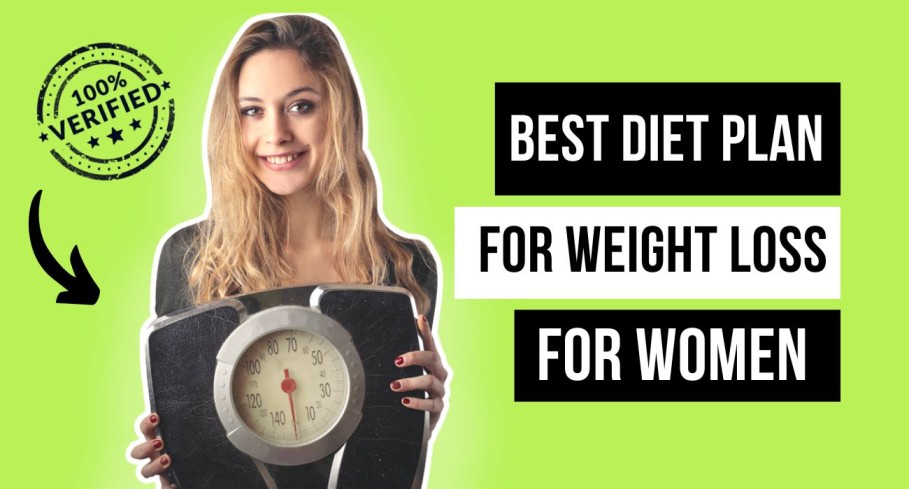
For women looking to lose weight, there are many diets and plans available. However, it can be difficult to determine which plan is best for you. The best diet plan for weight loss for women is one that is sustainable, healthy, and effective. This article will explore some of the best diet plans for weight loss for women, as well as tips, tricks, and strategies for successful weight loss.
Why Dieting is Important for Women:
Weight loss is important for women for many reasons. Excess weight can lead to a variety of health problems, including heart disease, diabetes, and high blood pressure. In addition, women who are overweight or obese may experience a variety of emotional and psychological issues, including low self-esteem, depression, and anxiety.
Dieting can help women lose weight, improve their overall health, and boost their self-esteem. However, it’s important to choose a diet plan that is sustainable and healthy. Crash diets and extreme weight loss programs may result in rapid weight loss, but they are often unhealthy and unsustainable.
Best Diet Plan for Weight Loss for Women:
The best diet plan for weight loss for women is one that focuses on healthy, whole foods and encourages a sustainable lifestyle. Some of the most popular diet plans for weight loss for women include:
Mediterranean Diet:
- The Mediterranean diet is a plant-based diet that emphasizes healthy fats, lean proteins, and whole grains. This diet is rich in fruits, vegetables, nuts, seeds, and olive oil, and includes moderate amounts of fish and dairy products. The Mediterranean diet has been shown to be effective for weight loss and improving overall health.
DASH Diet:
- The DASH diet is a healthy eating plan that is designed to lower blood pressure and promote heart health. The diet emphasizes fruits, vegetables, whole grains, lean proteins, and low-fat dairy products. It also encourages the reduction of sodium and processed foods. The DASH diet has been shown to be effective for weight loss and improving overall health.
Plant-Based Diet:
- A plant-based diet focuses on whole, plant-based foods such as fruits, vegetables, whole grains, legumes, nuts, and seeds. This diet is low in saturated fats and high in fiber, which makes it an excellent choice for weight loss. Studies have shown that a plant-based diet can lead to significant weight loss and improve overall health.
Low-Carb Diet:
- A low-carb diet focuses on reducing carbohydrates, such as bread, pasta, and rice, and increasing protein and healthy fats. This diet can be effective for weight loss, as it can help reduce cravings and increase feelings of fullness. However, it’s important to choose healthy sources of protein and fats, as well as to ensure adequate intake of fruits and vegetables.
Tips, Tricks, and Strategies for Successful Weight Loss:
In addition to choosing a healthy and sustainable diet plan, there are a number of tips, tricks, and strategies that can help women achieve successful weight loss. Some of these include:
Mindful Eating:
- Mindful eating is the practice of paying attention to the sensations and emotions associated with eating. This can include paying attention to hunger cues, eating slowly and without distractions, and savoring the flavors and textures of food. Mindful eating can help women make better food choices, reduce overeating, and improve digestion.
Portion Control:
- Portion control is an important aspect of weight loss. It’s important to pay attention to serving sizes and to avoid eating more than necessary. One effective strategy for portion control is to use smaller plates and bowls, as this can help trick the brain into thinking that a smaller portion is more satisfying.
Regular Exercise:
- Regular exercise is essential for weight loss and overall health. Women should aim for at least 150 minutes of moderate-intensity exercise per week, such as brisk walking, cycling, or swimming. Strength training exercises, such as weight lifting, can also be effective for building muscle and boosting metabolism.
Sleep:
- Getting enough sleep is important for weight loss and overall health. Lack of sleep can lead to increased hunger, cravings, and fatigue, which can make it difficult to stick to a healthy diet and exercise routine. Women should aim for 7-8 hours of sleep per night.
Stress Reduction:
- Stress can lead to overeating and weight gain. Women should prioritize stress-reducing activities, such as yoga, meditation, or deep breathing, to help manage stress and improve overall health.
Tracking Progress:
- Tracking progress can help women stay motivated and on track with their weight loss goals. This can include keeping a food diary, tracking exercise, or using a weight loss app or website. Celebrating small victories along the way can also help boost motivation and confidence.
The best diet plan for weight loss for women is one that is sustainable, healthy, and effective. The Mediterranean diet, DASH diet, plant-based diet, and low-carb diet are all effective options for weight loss. In addition to choosing a healthy diet plan, women should incorporate mindful eating, portion control, regular exercise, sleep, stress reduction, and tracking progress into their weight loss journey. With these tips, tricks, and strategies, women can achieve their weight loss goals and improve their overall health and well-being.
The Best Diet Plan for Weight Loss in Men: A Comprehensive Guide
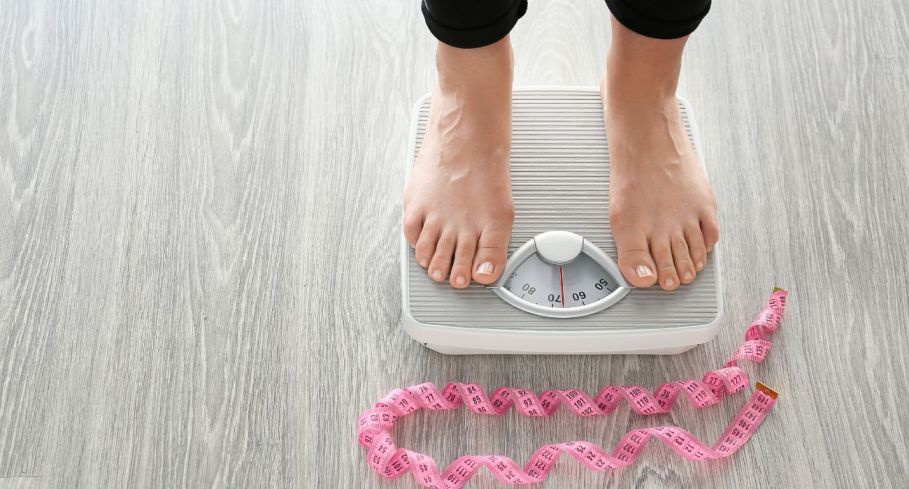
Losing weight is a common goal for many men, whether it is for health reasons or simply to feel more confident and comfortable in their own skin. However, with so many diet plans available, it can be challenging to determine which one is the best for weight loss in men. In this article, we will explore the most effective diet plans for men and provide tips for making sustainable lifestyle changes.
The Importance of Weight Loss for Men:
Weight loss is essential for men for several reasons. Excess weight puts men at risk of various health conditions such as heart disease, diabetes, and high blood pressure. Furthermore, carrying extra weight can lead to a lack of energy, reduced libido, and decreased overall quality of life. Losing weight can boost self-esteem and confidence, leading to an improved mental and emotional state.
Factors to Consider when Choosing a Diet Plan:
Before selecting a diet plan, there are several factors to consider. Men have different nutritional needs compared to women, which can vary based on age, activity level, and overall health. When selecting a diet plan, men should consider the following:
- Caloric intake: Men generally require more calories than women due to their larger size and higher muscle mass. The ideal caloric intake for weight loss in men can vary based on individual factors such as age, height, and activity level.
- Macronutrient balance: Men require a balanced intake of carbohydrates, proteins, and fats to maintain optimal health. A diet plan that is too low in carbohydrates or too high in fats can lead to negative health consequences.
- Nutrient density: It is essential to choose a diet plan that emphasizes nutrient-dense foods such as fruits, vegetables, whole grains, and lean proteins. A diet high in processed foods and added sugars can lead to weight gain and negative health outcomes.
- Sustainability: The most effective diet plan for weight loss in men is one that is sustainable and can be maintained long-term. Quick-fix diets that promise rapid weight loss are often unsustainable and can lead to weight gain in the long run.
Best Diet Plans for Weight Loss in Men:
The Mediterranean Diet:
- The Mediterranean diet is a popular diet plan that emphasises whole foods such as fruits, vegetables, whole grains, lean proteins, and healthy fats such as olive oil and nuts. This diet plan is high in fiber, which can help men feel full and reduce overall calorie intake. Studies have shown that the Mediterranean diet can lead to weight loss, improved heart health, and a reduced risk of chronic diseases such as diabetes and cancer.
The DASH Diet:
- The DASH diet, which stands for Dietary Approaches to Stop Hypertension, is a diet plan that focuses on reducing sodium intake and increasing the consumption of whole foods such as fruits, vegetables, lean proteins, and whole grains. This diet plan is high in fiber, potassium, and magnesium, which can improve heart health and lower blood pressure. Studies have shown that the DASH diet can lead to weight loss and a reduced risk of chronic diseases such as heart disease and diabetes.
The Flexitarian Diet:
- The Egalitarian diet is a plant-based diet plan that emphasises whole foods such as fruits, vegetables, whole grains, legumes, and nuts. This diet plan allows for occasional consumption of meat and dairy products, making it a flexible option for men who are not ready to commit to a fully plant-based diet. Studies have shown that the Egalitarian diet can lead to weight loss, improved heart health, and a reduced risk of chronic diseases such as diabetes and cancer.
The Paleo Diet:
6. The Paleo diet, also known as the Caveman diet, is a diet plan that emphasises whole, unprocessed foods such as meat, fish , fruits, vegetables, nuts, and seeds. This diet plan avoids processed foods, grains, and dairy products. The Paleo diet is based on the idea that our bodies were designed to eat like our Palaeolithic ancestors, and that modern diets filled with processed foods and sugar are responsible for many of the health problems that plague us today. Studies have shown that the Paleo diet can lead to weight loss, improved blood sugar control, and a reduced risk of chronic diseases such as heart disease and diabetes.
The Low-Carb Diet:
- The Low-Carb diet is a diet plan that restricts carbohydrate intake and increases protein and fat intake. This diet plan is based on the idea that carbohydrate-rich foods such as bread, pasta, and rice lead to spikes in blood sugar, which can promote weight gain and insulin resistance. By reducing carbohydrate intake, the body is forced to burn stored fat for energy, leading to weight loss. Studies have shown that low-carb diets can lead to significant weight loss and improved blood sugar control in men.
Tips for Making Sustainable Lifestyle Changes:
While choosing the right diet plan is important for weight loss in men, it is equally important to make sustainable lifestyle changes. The following tips can help men achieve long-term weight loss success:
- Set realistic goals: Setting realistic goals can help men stay motivated and focused on their weight loss journey. Rather than aiming for rapid weight loss, set a goal to lose 1-2 pounds per week.
- Make gradual changes: Making gradual changes to your diet and lifestyle can help you make sustainable changes. Rather than making drastic changes all at once, start by making small changes such as replacing sugary drinks with water or taking a daily walk.
- Plan ahead: Planning ahead can help men stay on track with their weight loss goals. Plan your meals in advance and stock your kitchen with healthy foods to avoid temptation.
- Stay active: Exercise is an essential component of weight loss for men. Aim for at least 30 minutes of physical activity per day, such as brisk walking or strength training.
- Seek support: Losing weight can be challenging, but having a support system can make it easier. Seek support from friends, family, or a weight loss support group.
Choosing the right diet plan is crucial for weight loss in men, but it is equally important to make sustainable lifestyle changes. The Mediterranean, DASH, Flexitarian, Paleo, and Low-Carb diets are all effective options for weight loss in men. However, the best diet plan for weight loss in men is one that is sustainable and can be maintained long-term. By setting realistic goals, making gradual changes, planning ahead, staying active, and seeking support, men can achieve long-term weight loss success and improve their overall health and quality of life.
Choosing the best diet plan for weight loss can be a challenging process, but by understanding the benefits and drawbacks of different diets and considering your goals, lifestyle, and budget, you can make an informed decision that works for you. Remember, the most effective diet plan is one that you can stick to over the long term, so choose a plan that you enjoy and that fits with your life. With the right diet plan and a commitment to healthy habits, you can achieve your weight loss goals and improve your overall health and well-being.
Frequently Asked Questions (FAQ)
There is no one-size-fits-all answer to this question. Different diet plans work for different people. It’s best to consult with a healthcare professional to determine which plan is best for you.
Consider your lifestyle, eating habits, food preferences, and any health conditions you may have. Research different diet plans and consult with a healthcare professional before starting one.
Yes, some diet plans may be restrictive, promote rapid weight loss, or lack essential nutrients. It’s important to choose a diet plan that is safe and healthy for you.
It depends on the diet plan. Some diet plans allow for occasional indulgences, while others may require strict adherence. Moderation is key.
It varies depending on the person and the diet plan. It’s important to set realistic expectations and focus on sustainable, long-term weight loss.
Yes, it’s important to consult with a healthcare professional before starting any weight loss diet plan to ensure it is safe and appropriate for your individual needs.
It’s important to ensure you are getting adequate protein, fiber, and essential vitamins and minerals while following a weight loss diet plan.
It depends on the diet plan. Some may require calorie counting, while others focus on portion control or food choices.
Yes, incorporating exercise into your weight loss plan can aid in weight loss and improve overall health.
Some common mistakes include setting unrealistic goals, depriving oneself of favorite foods, and not getting enough nutrients.
Yes, it’s possible to dine out while following a weight loss diet plan. Look for healthier options and practice portion control.
Set realistic goals, track progress, find a support system, and focus on the health benefits of weight loss.
Some supplements and diet pills may aid in weight loss, but it’s important to consult with a healthcare professional before taking any supplements.
incorporate lean protein sources such as chicken, fish, beans, and tofu into your meals and snacks.
Some healthy snack options include fresh fruit, vegetables with hummus, Greek yogurt, and nuts.
Some diet plans allow for occasional cheat meals, but it’s important to practice moderation and not undo all of your progress.
Examples of weight loss diet plans include the Mediterranean diet, low-carb diets, and intermittent fasting.
A weight loss diet plan can improve overall health by reducing the risk of chronic diseases such as type 2 diabetes, heart disease, and certain cancers.
Some potential risks include nutrient deficiencies, dehydration, and loss of muscle mass. It’s important to choose a safe and balanced diet plan and consult with a healthcare professional.
Gradually reintroduce foods that were restricted during your weight loss diet plan while maintaining portion control and healthy habits. Focus on sustainable lifestyle changes for long-term success.

